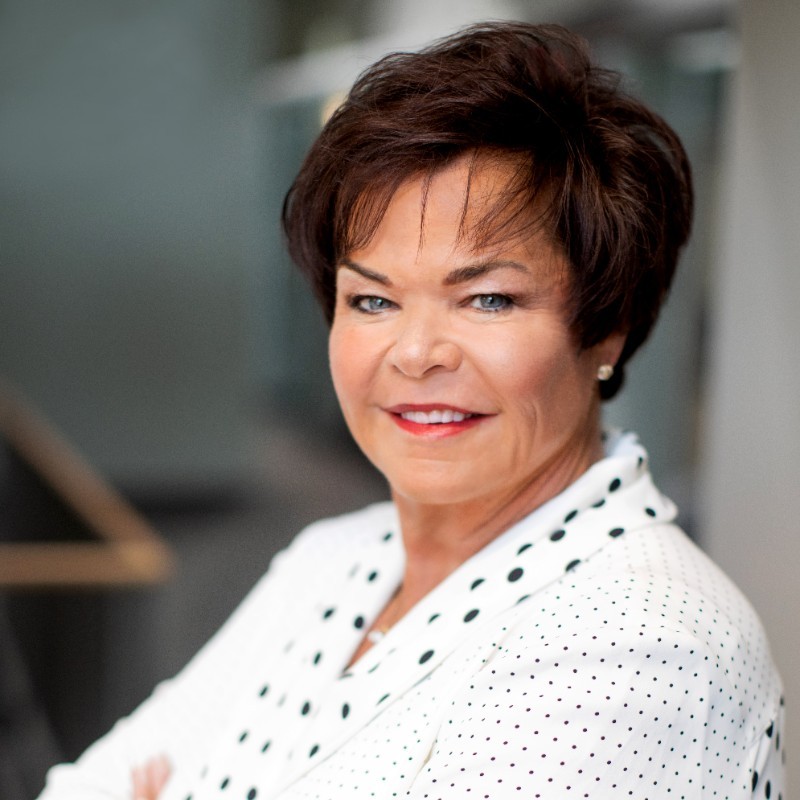Interview with Lexitas
Jason Primuth
December 7, 2023
Remote Proceedings
Interview with Lexitas: Jason Primuth
Jason Primuth, our Chief Innovation Officer, does a great job of helping Lexitas navigate the constant flux of the digital age. We all benefit from his work, but we don’t always get to see how it happens. I appreciated getting to know Jason a little better, and I hope this helps you get to know him a little better, too.
Debbie Weaver:
Hi there! Thanks so much for taking the time to answer some questions and share a little bit about yourself.
Let’s start with the basics: Can you tell me a little bit about your professional background? Did you originally plan to do the kind of work you’re doing now? What is the educational and/or professional path that led you to join Lexitas?
Jason Primuth:
Getting to this current point was anything but linear or intentional. I went to school for politics and worked in Congress for two years. That was enough to convince me that I absolutely didn’t want to work in politics. So I dropped out, started an Internet company, and took another company public. In 2000, I moved to the San Francisco Bay Area and joined YesVideo – a company focused on consumer media conversion. I created their legal division called YesLaw and found out how much I enjoyed the legal technology space.
In 2005, I became the General Manager of RealLegal, and then also the VP of Sales for LiveNote and their court reporting division. In 2010, I co-founded NextGen Reporting – a court reporting firm that specialized in remote depositions. Six years later, NextGen was acquired by Lexitas.
Debbie:
That’s a pretty amazing progression! What do you love about your current job? What are some of the things you get the most satisfaction from at work?
Jason:
Helping make people’s lives better – either by streamlining their jobs, making better use of their time, or helping them find insights that they wouldn’t otherwise have spotted. It honestly makes my day to hear about projects from years past that are still helping people in their daily work. Even though I’ve wrapped up the project, it’s great to hear that a particular solution is still helping someone.
Debbie:
So true. I can definitely relate. What tools or skills do you find yourself using most to be successful at your job?
Jason:
Listening. The most important part of my job is understanding people’s pain points and exploring ways to address them. Sometimes people have specific ways that they want the Office of Innovation to help. Other times people just know that there’s a better way to do their job, and we work together to figure it out. In either case, my motivation is to make Lexitas a better place for our employees and our customers.
Debbie:
Innovation and change are huge parts of what drives your work at Lexitas. The digital age offers constant challenges, but also endless new opportunities. How do you navigate all of that?
Jason:
A big part of my job every day is learning. There are constant developments in technology around our space: AI, security, legal technology, etc. There are many innovative companies facing the same challenges we are, and we have to keep up and get ahead.
I really force myself to think about the full legal ecosystem, not just specific business functions. Coming from the court reporting space, I tend to think of things from the deposition mindset. But I have to remind myself that our clients do not. They think in terms of a case, a client, and their career. So I want to make sure we share that mindset and that it informs where we go next.
Debbie:
I love that focus on client connection. How has the work you do with innovation helped improve some of the services we offer our clients? What are some of your biggest successes – either on your own or as part of a team?
Jason:
All of my successes are team successes. I’ve had the privilege of helping consolidate some of our core technology, helping our court reporting clients transition to remote depositions, and helping sales reps identify promising case leads. But I’m even more excited about the projects on the horizon, where we can really take advantage of AI to help clients and grow our business.
Debbie:
That forward focus is so important, but I can’t imagine navigating all of that is easy. What are some of the most challenging parts of your job? What are some of the things that take a little more time and patience?
Jason:
One common challenge is helping people see change as a positive development rather than something to fear. My instinct is to move quickly and change eagerly, so it can be hard to see life from the opposite perspective.
Debbie:
What is your favorite part of approaching work each day? What gets you up in the morning and keeps you engaged?
Jason:
More than anything, I like helping people solve problems – both employees and clients. I like working with a team of people to proactively address problems, sometimes with unexpected solutions. The best part is looking back at past projects to see how they continue to help people and how they set the stage for further advances.
 |
| Jason Primuth Chief Innovation Officer |
Debbie Weaver:
Hi there! Thanks so much for taking the time to answer some questions and share a little bit about yourself.
Let’s start with the basics: Can you tell me a little bit about your professional background? Did you originally plan to do the kind of work you’re doing now? What is the educational and/or professional path that led you to join Lexitas?
Jason Primuth:
Getting to this current point was anything but linear or intentional. I went to school for politics and worked in Congress for two years. That was enough to convince me that I absolutely didn’t want to work in politics. So I dropped out, started an Internet company, and took another company public. In 2000, I moved to the San Francisco Bay Area and joined YesVideo – a company focused on consumer media conversion. I created their legal division called YesLaw and found out how much I enjoyed the legal technology space.
In 2005, I became the General Manager of RealLegal, and then also the VP of Sales for LiveNote and their court reporting division. In 2010, I co-founded NextGen Reporting – a court reporting firm that specialized in remote depositions. Six years later, NextGen was acquired by Lexitas.
Debbie:
That’s a pretty amazing progression! What do you love about your current job? What are some of the things you get the most satisfaction from at work?
Jason:
Helping make people’s lives better – either by streamlining their jobs, making better use of their time, or helping them find insights that they wouldn’t otherwise have spotted. It honestly makes my day to hear about projects from years past that are still helping people in their daily work. Even though I’ve wrapped up the project, it’s great to hear that a particular solution is still helping someone.
Debbie:
So true. I can definitely relate. What tools or skills do you find yourself using most to be successful at your job?
Jason:
Listening. The most important part of my job is understanding people’s pain points and exploring ways to address them. Sometimes people have specific ways that they want the Office of Innovation to help. Other times people just know that there’s a better way to do their job, and we work together to figure it out. In either case, my motivation is to make Lexitas a better place for our employees and our customers.
Debbie:
Innovation and change are huge parts of what drives your work at Lexitas. The digital age offers constant challenges, but also endless new opportunities. How do you navigate all of that?
Jason:
A big part of my job every day is learning. There are constant developments in technology around our space: AI, security, legal technology, etc. There are many innovative companies facing the same challenges we are, and we have to keep up and get ahead.
I really force myself to think about the full legal ecosystem, not just specific business functions. Coming from the court reporting space, I tend to think of things from the deposition mindset. But I have to remind myself that our clients do not. They think in terms of a case, a client, and their career. So I want to make sure we share that mindset and that it informs where we go next.
Debbie:
I love that focus on client connection. How has the work you do with innovation helped improve some of the services we offer our clients? What are some of your biggest successes – either on your own or as part of a team?
Jason:
All of my successes are team successes. I’ve had the privilege of helping consolidate some of our core technology, helping our court reporting clients transition to remote depositions, and helping sales reps identify promising case leads. But I’m even more excited about the projects on the horizon, where we can really take advantage of AI to help clients and grow our business.
Debbie:
That forward focus is so important, but I can’t imagine navigating all of that is easy. What are some of the most challenging parts of your job? What are some of the things that take a little more time and patience?
Jason:
One common challenge is helping people see change as a positive development rather than something to fear. My instinct is to move quickly and change eagerly, so it can be hard to see life from the opposite perspective.
Debbie:
What is your favorite part of approaching work each day? What gets you up in the morning and keeps you engaged?
Jason:
More than anything, I like helping people solve problems – both employees and clients. I like working with a team of people to proactively address problems, sometimes with unexpected solutions. The best part is looking back at past projects to see how they continue to help people and how they set the stage for further advances.
